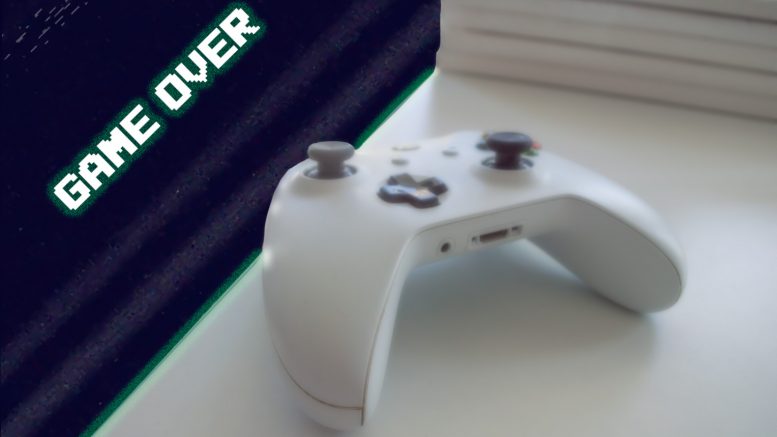Cameron Monaghan has returned to the role of Cal Kestis in Star Wars Jedi: Survivor, people still aren’t over Keanu Reeves in Cyberpunk, and there are recent discussions of unfair pay in the game industry. Two rights shouldn’t make a wrong, right?
It’s no surprise that actors in high-demand are receiving a bit more pay for their voice acting roles in video games. What is a surprise, is hearing that actors who have brought life to a character you love, can’t even afford to drive their car with their wage provided. All from a company they contributed to making hundreds of millions, which isn’t even a fraction of what they were paid.
It’s completely necessary for video games to have voice actors. Especially in the modern world, where depth and complexity in the video game/entertainment industry, equals die-hard fans, mass money and attention for the companies that release them. As well as attracting fans from other areas of entertainment and the world, for franchises from DC’s Batman to Marvel’s Spider-Man, causing intrigue for people who might not even be that interested in video games typically.
Now having a slight understanding to how it’s important to have voice actors who can do their job successfully, why aren’t they getting paid more? Or at least, the same amount of money that celebrities would get paid for a role that would sometimes not require as much time and dedication?
Snoop Dogg’s portrayal of himself in True Crime: Street’s of LA was a huge deal during the games release in 2003, especially when you got the chance to play his character. It’s a cool way to add an interesting flair to the game when you have a celebrity feature as themselves, which is fine. But fast-forward to 2022, where dozens of celebrities are appearing in almost every game release, it loses its novelty and becomes a bit predictable for big games – yet underwhelming for indie games that are trying to make it out of the back-stage.
Similarly to casting voice actors for animation and theatre, voice actors in general are trained to portray particular tones and emotions that are typically less-thinkable for screen-actors who are trained differently. Professionally trained theatre actor Daniel Steven Walford, 23, from London, has spoken up on his frustration over the matter and has said that, “As someone that’s trained, it’s disheartening when celebrities are cast purely for the attraction of production” before he speaks on whether projects casting celebrities are “diminishing the line of quality over the product”.
21 year-old actor, Katrina Brennan-Wright from Bexhill, speaks to the Voice of London over the complications that rise with being trained to show emotion through your voice versus your face on the big-screen; “Since training, I’ve heard a lot of backlash towards theatre actors who are criticised for being too over the top and expressive, but this is because TV and film quality has improved so much that less is now seen as more”.
She empathises, taking a stand with voice actors everywhere; “knowing how to animate emotion through voice and resonance is a skill thats not widely appreciated outside of theatre and other industries that require this same skill, such as voicing video game characters. That’s why celebrities and screen actors keep landing these roles”.
Professionally trained voice actors is exactly what leads to the commercial success of animations and video games of the past, such as voice actor Judith Gibbens who voiced Lara Croft in Tomb Raider II and Tomb Raider III: Adventures of Lara Croft. Due to her limited script, fans of the franchise are quick to recognise Gibbens’ voice and catchphrases such as; “No, that’s not right. Go back to the beginning and try again”, and thus born was the popular and iconic Halloween costume.
However, 25 year-old voice actor from Hove, Anna Moorey, creates an interesting argument in regards to motion capture performances; “The game Until Dawn featured celebrity voice acting and facial capture, but the majority of the characters’ body acting was performed by different actors and the way they are credited is vastly different. Should the way they are credited be more similar?”. Which creates a very complex argument. She then continues that there is “definitely something said about wanting a ‘pull’ to boost sales, which is present in most media”.
Likewise to a lot of issues, how are companies able to get away with what has been going on for way too long? Just because it’s a bit exciting to see someone we see on the TV everyday feature in a video game… especially when they’re receiving a mass of money that they likely don’t really need, especially a mass they don’t need as much as traditional video game voice actors do, who don’t even get paid royalties for their work.
Is it a good thing we’re seeing more celebrities being casted to voice video game characters? Let us know what you think @VoiceOfLondonUK.
Words: Charissa Halsey | Subbing: Kiefer Jones| Featured Image: Charissa Halsey


Be the first to comment on "Is it OK to replace video game voice-actors with celebrities?"